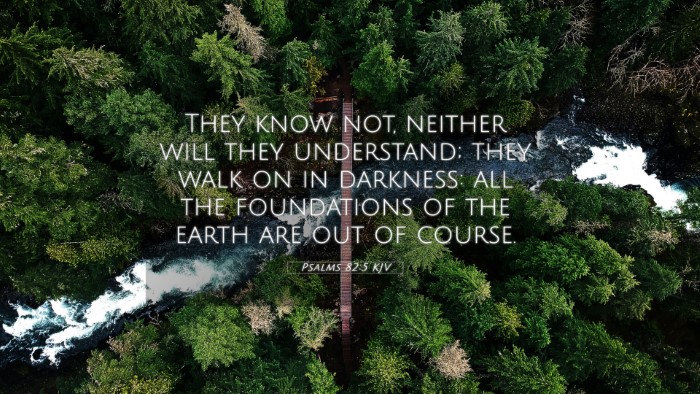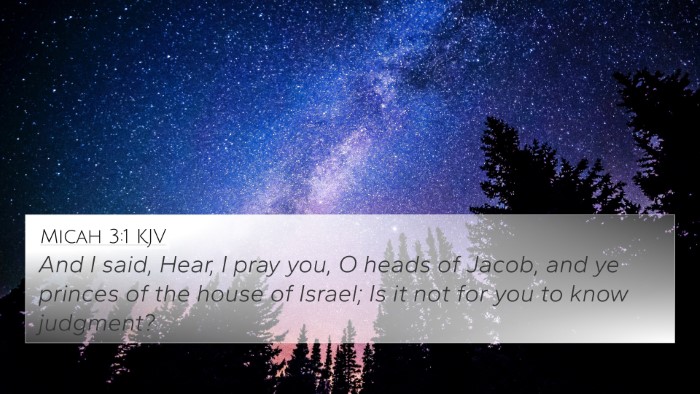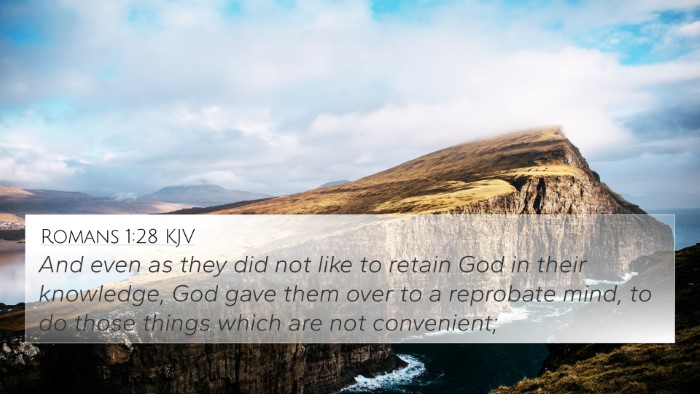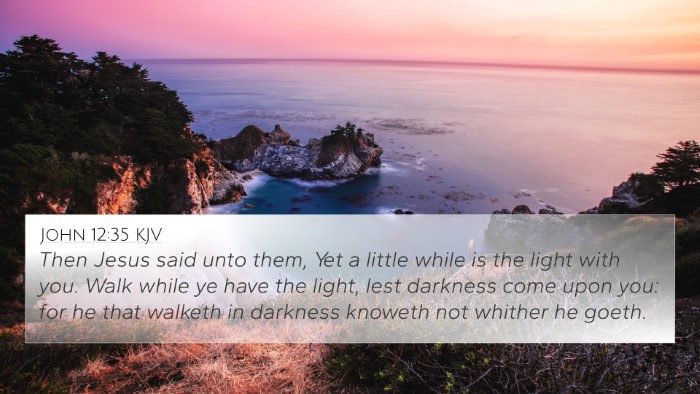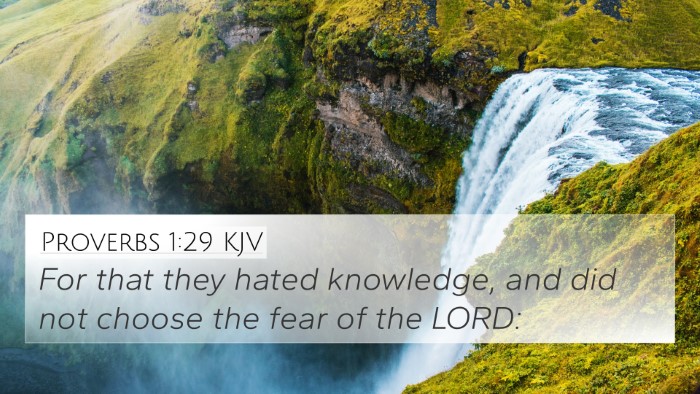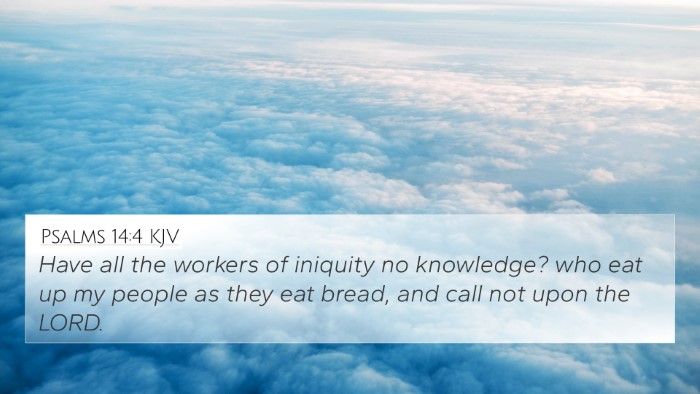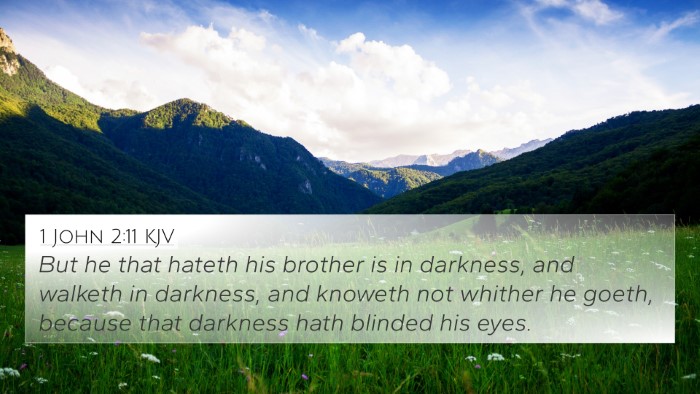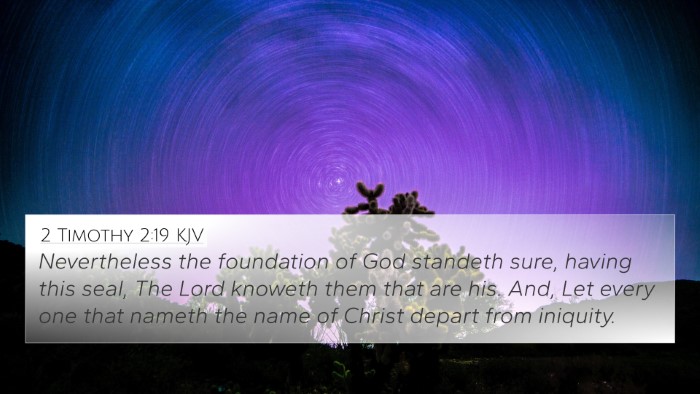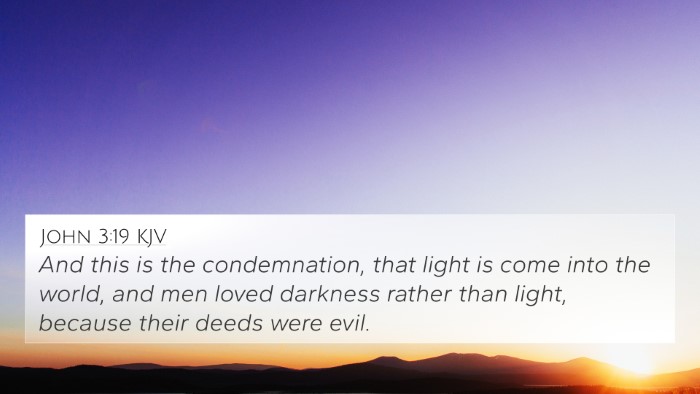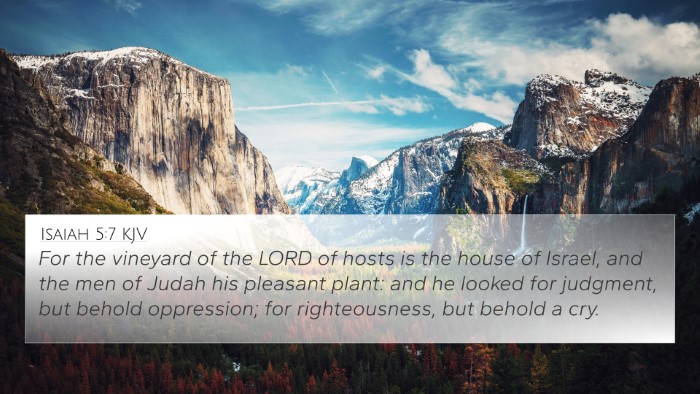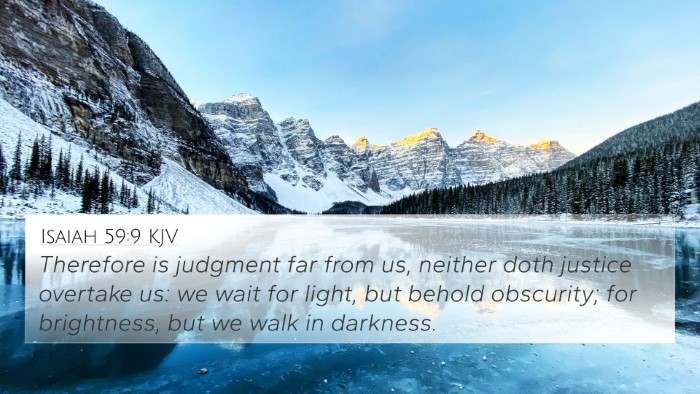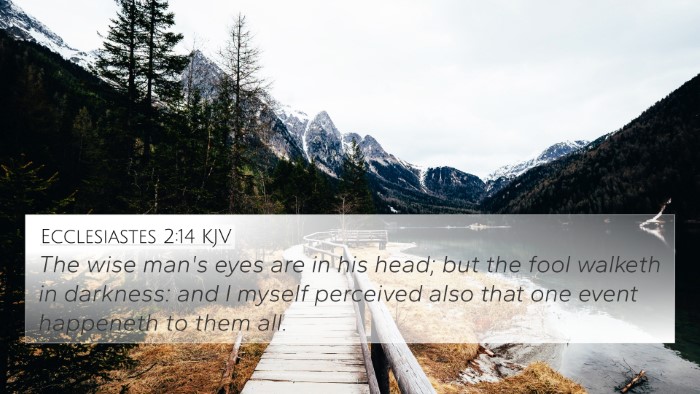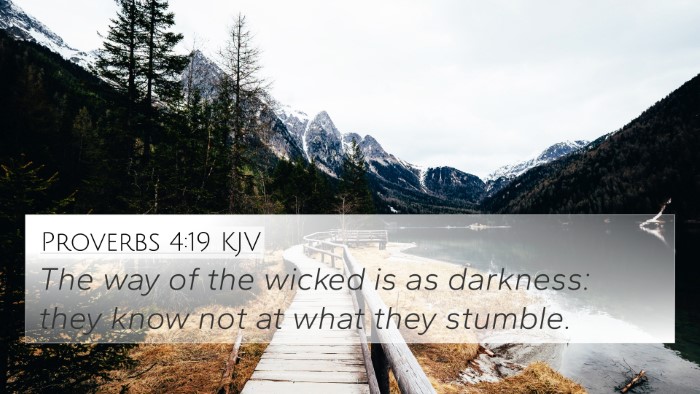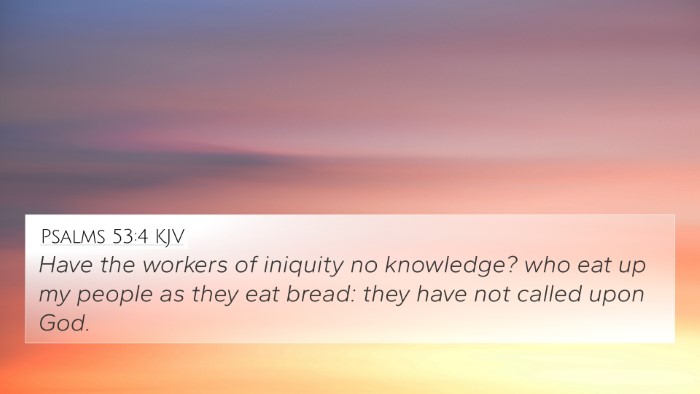Understanding Psalms 82:5
Psalms 82:5 states: “They know not, neither will they understand; they walk on in darkness: all the foundations of the earth are out of course.” This verse is a profound reflection on the ignorance and moral failure of earthly rulers and judges who fail to uphold justice and righteousness.
Context and Background
This psalm is attributed to Asaph, a contemporary of David, who is viewed as a prophetic voice addressing the injustices prevalent in society. It serves as a warning and a call to accountability among those in power.
Summary of Commentary Insights
- Matthew Henry: He emphasizes that the ignorance of those in authority leads to a breakdown of societal order. The “foundations of the earth” implies the very fabric of society is affected by their failure to act justly.
- Albert Barnes: Barnes highlights the significance of knowledge and understanding in leadership. He notes that the absence of these qualities results in drunken behavior metaphorically speaking, as leaders “walk in darkness,” unable to perceive the truth or make righteous decisions.
- Adam Clarke: Clarke interprets walking in darkness as a metaphor for living in sin and moral confusion. He calls for enlightenment through divine intervention, suggesting that only God can restore order among chaotic judges.
Thematic Bible Verse Connections
The themes in Psalms 82:5 resonate with various biblical texts, illustrating the importance of justice, righteousness, and the responsibilities of leadership. These connections are thematic, linking the understanding of divine justice across the scriptures.
Related Cross-References
- Psalm 11:3: "If the foundations be destroyed, what can the righteous do?" – This emphasizes the importance of a just foundation in society.
- Proverbs 29:2: "When the righteous are in authority, the people rejoice: but when the wicked beareth rule, the people mourn." – Reflecting on the effect of leaders' ethics on the populace.
- Isaiah 5:20: "Woe unto them that call evil good, and good evil; that put darkness for light, and light for darkness." – Condemning moral blindness that leads to injustice.
- Jeremiah 22:3: "Thus saith the LORD; Execute ye judgment and righteousness, and deliver the spoiled out of the hand of the oppressor." – A call for just governance.
- Micah 6:8: "He hath shewed thee, O man, what is good; and what doth the LORD require of thee, but to do justly, and to love mercy, and to walk humbly with thy God?" – Outlining God's requirements for leaders and individuals alike.
- Romans 13:1: "Let every soul be subject unto the higher powers. For there is no power but of God: the powers that be are ordained of God." – Discussing the divine order in governance.
- Ephesians 5:8: "For ye were sometimes darkness, but now are ye light in the Lord: walk as children of light." – Encouraging moral clarity and understanding.
Insights on Leadership and Responsibility
In analyzing this verse, it becomes evident that the call for justice is crucial for maintaining a stable society. The implications of such leadership underscore that knowledge, understanding, and ethical behavior are paramount in governing rightly.
Implications for Modern Readers
- This verse challenges leaders today to reflect on their actions and the impact of their decisions on society.
- It serves as a reminder for individuals at all levels to seek knowledge and understanding in their roles, whether in governance, community, or personal life.
- The connection to other scriptures ensures that the moral implications of leadership are understood as part of a broader biblical framework.
Cross-Referencing Biblical Texts
To deepen the understanding of Psalms 82:5, employing tools for Bible cross-referencing can be invaluable. Utilizing a Bible concordance or Bible cross-reference guide can help identify additional themes and parallels that enhance comprehension and interpretation.
Conclusion
Psalms 82:5 serves as a significant reminder about the responsibilities of those in power and the vital need for justice and understanding in leadership. By drawing connections through cross-referencing Biblical texts, readers can appreciate the intricate web of scriptural teachings that call for ethical governance and moral integrity.
Final Thoughts
In a world often shrouded in darkness regarding justice, the clarion call of scripture reminds us that through seeking God’s wisdom, awareness, and righteousness, we can act as lights in a darkened world.

